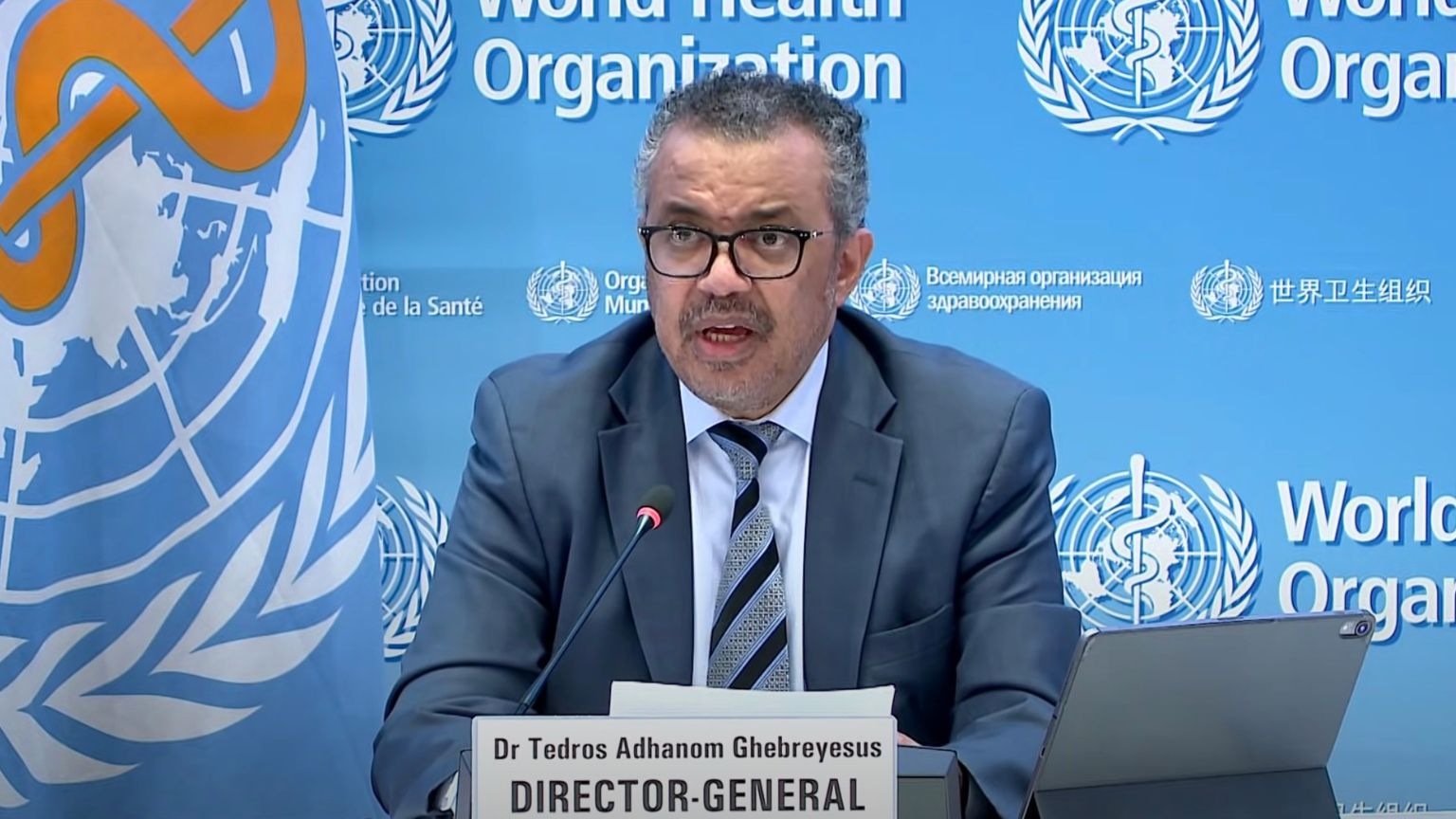The Global Preparedness Monitoring Board (GPMG) – a body set up by the UN’s World Health Organization (WHO) and the World Bank – has released its annual report for 2023.
WHO’s Director-General Tedros Adhanom Ghebreyesus offered his reaction to it, the key takeaway from both the report and his remarks being that work on the proposed pandemic accord/agreement/treaty is progressing too slowly.
Related: UN Publishes Final Draft of Declaration That Targets “Misinformation” Backs WHO Pandemic Treaty
The WHO has a great interest in this treaty coming into force as soon as possible and wants UN member-states to speed things up, as it would give WHO new, not only health-related but also essentially political powers – such as targeting what it designates as “misinformation,” all the way to surveillance.
The way the WHO head is selling the need for the document to be completed and adopted ASAP is, naturally, different: Tedros says it has to do solely with preparedness and response to health emergencies. And he is using Covid as proof and justification that this treaty is needed.
As Ghebreyesus put it in urging countries to hurry up finalizing the document, “Another pandemic or global health emergency could come at any time, just as it did in 2019.”
And he is “concerned that negotiations are progressing too slowly, and that the agreement may not be ready in time for the World Health Assembly next year.”
GPMB, meanwhile, was set up just a year before the “previous pandemic” – in 2018. The group describes itself as an independent (that just happens to be convened by WHO and the World Bank) monitoring and “accountability” body.
The new report dubs the world’s preparedness as being in “a fragile state,” apparently despite GPMB’s “best efforts” to provide policymakers around the world with assessments and “a roadmap to a safer world.”
To make this world possible, the WHO has released something called “new infodemic management tool.” But what in the world is an “infodemic”?
WHO says it’s “too much information including false or misleading information in digital and physical environments during a disease outbreak.”
Further, an “infodemic” is painted as an ill that can lead people to engage is “risk-taking behaviors,” not to mention undermine trust in (health) authorities.
It seems pretty clear that the buzzword has been crafted, and defined, in reaction to criticism and skepticism around Covid measures, and that WHO keeps marching along the path it has taken during the pandemic – preparing for “the next one” by focusing on how to better control information and whatever the message may be.










